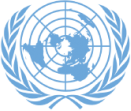
Thank you, Mr. Chairman.
First of all, I wish to join the other speakers in thanking the UN Secretary-General and OHRLLS for the comprehensive reports under this Agenda Item.
I align my statement with those delivered by the State of Palestine, Ethiopia and Paraguay on behalf of the Group of 77 & China, LDCs, and LLDCs respectively.
Mr. Chairman,
As we approach the closing of the Istanbul Programme of Action with just one year and a few months left for its implementation, there is a need for more focused action for structural transformation of LDCs.
The overarching goal of the IPOA was to enable half of the LDCs to meet the graduation criteria by 2020.
However, we are not even halfway to meet that ambition.
Furthermore, the increasing trade tensions hurt the furthest behind the most. More than that, it assaults the very philosophy of a rule-based and fair global trading regime.
Technological divide is one of the major factors underpinning the development divide. Therefore, technology transfer is critical for LDCs.
In this regard, Nepal welcomes the operationalization of Technology Bank for LDCs and emphasizes the need for more resources and delivery.
We know, mere acknowledgement of the specific challenges of LDCs is not sufficient.
The slow pace of implementation of our commitments calls for further reflections. Equally important is to undertake targeted efforts and scale up cooperation. Efforts must be redoubled including through aligning support to LDCs’ priorities with a focus on building productive capacity.
This is important also because the success of the Agenda 2030 will hinge on the results achieved in LDCs.
Mr. Chairman,
Nepal has already met two out of three criteria for graduation from the LDC status. But, we still have low per capita income.
Therefore, we are now intensifying our development efforts to build ground for sustainable graduation as well as to become a middle-income country by 2030.
We are localizing SDGs, and remain effortful to achieve a balanced and robust economic development with a high growth rate.
We believe that an enhanced, predictable and continued support for LDCs is needed to ensure smooth transition and sustainable graduation.
These issues should be a part of thoughtful discussion as we look forward to the Fifth UN Conference on LDCs in 2021.
Mr. Chairman,
Those LDCs which are also landlocked face even more challenges. Their landlockedness, lack of territorial access to the sea, remoteness from the world markets and high transit costs pose serious constraints on the overall growth and socioeconomic development of these countries
Disasters and climate change further aggravate such challenges.
LLDCs also trail behind in connectivity --with a palpable gap in infrastructures. Structural transformation and trade diversification continue to remain daunting challenges.
Vienna Programme of Action has well stipulated the priorities of the LLDCs. My delegation calls for the full, timely and effective implementation of the VPOA.
Nepal looks forward to the convening of the comprehensive high-level mid-term review of VPOA in December this year.
We also call for adequate support to the works being carried out by the International Think Tank for LLDCs.
In conclusion, Mr. Chairman, the countries in special situations such as LDCs and LLDCs need financing and investments to overcome challenges pertaining to poor infrastructures, narrow production and export bases, poor capital formation, and low factor productivity. An enhanced level of international support should be oriented towards helping these countries tackle such challenges.
I thank you.


